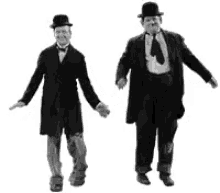Thai Household Debt
-
Recently Browsing 0 members
- No registered users viewing this page.
-
Topics
-
Popular Contributors
-
Latest posts...
-
165
Trump Mocks France Over WWII Commemorations, Urges Greater U.S. Recognition
Trump's ignorance on the French participation in WWII demonstrates the usual American poor education. 90,000+ died defending against the German invasion. 2 million french military personnel were forced into slave labour camps to serve Germany. There 300,000 Free French forces who participated in the North Africa campaign and the liberation of Europe after D Day. By 1944, once France had been liberated, the Free French forces had in excess of 500,000 personnel, and then by 1945, over 1 million. Canada's participation wasn't about loyalty to the crown. It was about doing the right thing. The declaration of war was not automatic and was debated in parliament. Canadians had already volunteered to fight the fascists in Spain, enough to form the Mackenzie Papineau Battalion. Had the world stopped Germany's intervention in Spain, Europe might have been able to hold off a war. You do not see a need to have fought against the Nazis and their evil. That says more about you than anything else. The Canadian military volunteers were a diverse people. Irish and Scottish heritage Canadians volunteered in large numbers and they had no love for the English. French Canadians volunteered in large numbers providing 20%+ of the military / 160,000+ and many of them gave their lives in the months following D Day. Every region had people who had links or origins in Europe and who had an understanding of the cancer that was spreading . Despite some Japanese air raids, most of Australia was safe. Neither Australia nor New Zealand was open to invasion by Japan. Nor could have Japan managed to invade and capture them. Australia's geography and New Zealand's location offered a tremendous advantage. More importantly, the population of the two countries would have fought until the end to stop an invasion. The Australians quickly responded and after the initial shock of the bombing of Darwin, and effectively defended against the threat. After that, the best the Japanese could do was a few mini submarine attacks. The Australian strategy that prevented the Japanese capture and hold of Papua New Guinea motivated the island hopping strategy used by the USA to defeat Japan in the Pacific. campaign. The Germans feared the Canadian military in Europe and the Japanese feared the Australian and New Zealand military in the Pacific. That's all you need to know. -
3
Slow puncture rear tyre GPX Drone
My wife had a slow (days/weeks) puncture on here tubeless tire shod electric scooter. She would unbeknownst to me visit a local moocy shop and pay 20 baht to get it reinflated. Easy fix for me was an aerosol can of tire sealer from Mr. DIY. I think more escaped during filing than went inside but it did solve her problem. -
165
Trump Mocks France Over WWII Commemorations, Urges Greater U.S. Recognition
Look at the emojinauts with their thumbs down emojis, above. LOL. Where is the apology from any of you bold faced liars? How bout just an abject "I was wrong" LOL. Liars and losers. -
146
So where did you meet your Thai girlfriend or wife?
Not a sad comment. Ever heard of free speech? The poster can say whatever he/she wants. -
43
Milwaukee Judge indicted for Aiding Immigrant's Escape from ICE Custody
Simply motion filed to dismiss. That would be sad if approved. A system that makes laws, that don't apply to the law makers or enforcers of. -
18
Resignation but not approved (foreign employee at thai company)
Take it up with your new employer, apart from possibly seeing the Labour Department. Should they intend to play funny (like not paying your last wage) then just drop the line of Labour Department as they are very open to employees rather than employers. This refers to the fact that you never had an issue with your employer resulting in a warning note. It is idiotic to keep an employee against his/her will if they want to leave. In the past, when I had employees (Thais and non-Thais alike) I had them leaving soonest possible as they - understandable - did not execute their work with full heart and mind any longer. Never had an issue as I - of course- did stick to the deal as outlined in the contract and company regulations as far as salaries due and untaken vacation etc. was concerned.
-
-
Popular in The Pub
-















Recommended Posts
Create an account or sign in to comment
You need to be a member in order to leave a comment
Create an account
Sign up for a new account in our community. It's easy!
Register a new accountSign in
Already have an account? Sign in here.
Sign In Now